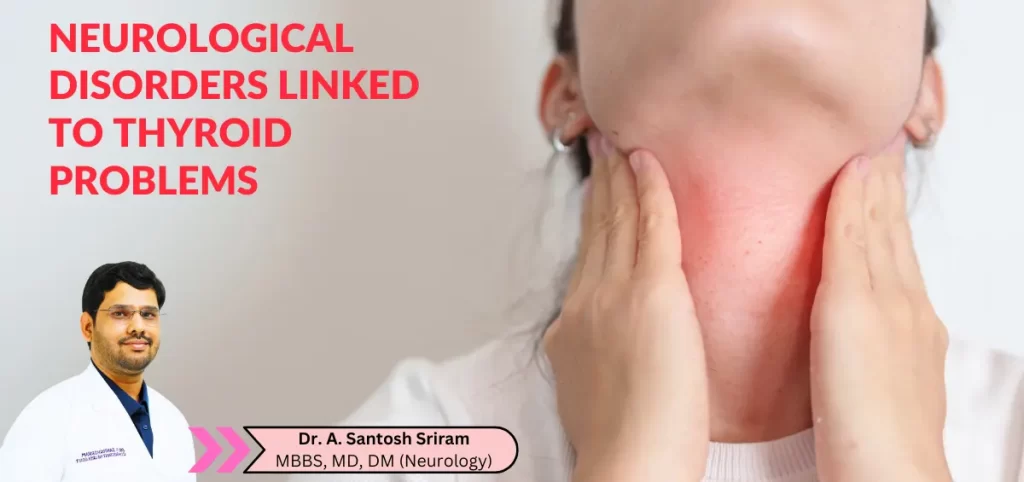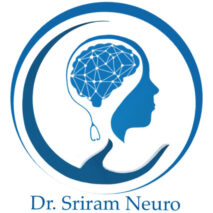
Best Hypothyroidism – Hyperthyroidism Treatment in Hyderabad
Thyroid disorders are common clinical problems that can lead to either under-functioning (hypothyroidism) or over-functioning (hyperthyroidism) of the thyroid gland, resulting in various symptoms and clinical manifestations.
In this article, we will understand how both hypothyroidism and hyperthyroidism can lead to different types of neurological complications.
Hypothyroidism:
Hypothyroidism occurs when the thyroid gland produces insufficient thyroid hormones, leading to a slowdown of the body’s metabolic processes amongst other effects.
Hyperthyroidism:
Hyperthyroidism occurs due to the overproduction of thyroid hormones, causing an acceleration of the body’s metabolic functions.
Let’s take a look at the possible neurological impacts of Hypothyroidism and Hyperthyroidism.
Neurological Impacts of Hypothyroidism
- Motor or sensory symptoms: Studies show that around 80% of patients with newly diagnosed or untreated hypothyroidism may exhibit motor or sensory symptoms.
- Peripheral Neuropathy: Approximately 42% of individuals with hypothyroidism may experience peripheral neuropathy, characterized by tingling, burning, or prickling sensations in the legs.
- Entrapment Neuropathies: It is a condition that occurs when a nerve is compressed between two other structures in the body. Example is carpal tunnel syndrome, which is seen in up to one-third of patients of patients with hypothyroidism. Symptoms may include pain, tingling and numbness in the palm and fingers.
- Muscle-Related Symptoms: Up to 80% of untreated hypothyroid patients may develop muscle issues such as myalgia (muscle pain), cramps, stiffness, fatigue, and, in severe cases, limb-girdle weakness. These symptoms often improve with thyroid replacement therapy.
- Myxedema Coma: Those with severe untreated hypothyroidism may experience a rare but life-threatening condition called Myxedema Coma. It can present with confusion, drowsiness, stupor, seizures, and psychosis. Without treatment, it can progress to coma and death. Supportive care and thyroid replacement therapy are essential for recovery.
- Hashimoto’s Encephalopathy: It is estimated that 2 in 100,000 patients with autoimmune (Hashimoto) thyroiditis may develop into a rare condition called Hashimoto’s Encephalopathy. Its symptoms include imbalance, tremors, seizures, sleep disturbances, and hallucinations. It responds to corticosteroid treatment.
Neurological Impacts of Hyperthyroidism
Hyperthyroidism involves excessive production of thyroid hormones, leading to various neurological symptoms.
- Neuropsychiatric Symptoms: Hyperthyroidism patients may often experience neuropsychiatric symptoms. These symptoms may include anxiety, depression, irritability, emotional lability, insomnia, tremors, headaches, weakness, and cognitive issues like inattention. Severe untreated neuropsychiatric symptoms may progress to coma.
- Fine Postural Tremor: A common symptom of hyperthyroidism, characterized by a fine tremor in the hands, which can be managed with medication and typically improves with treatment of the underlying thyroid condition.
- Muscle Weakness: Over 60% of hyperthyroid patients experience muscle weakness, which may be related to muscle disease or peripheral neuropathy.
- Thyrotoxic Periodic Paralysis: It is a rare condition of hyperthyroidism that may affect about 2% of hyperthyroid patients, particularly those with Graves’ disease, characterized by sudden onset weakness in all four limbs due to low potassium levels.
- Stroke Risk: Research shows that individuals with thyrotoxicosis (too much thyroid hormone in the body), especially those with atrial fibrillation (an irregular heart rhythm), have a slightly higher risk of stroke.
If you have thyroid-related disorders accompanied by neurological symptoms such as unexplained fatigue, muscle weakness, pain, tingling, and numbness, tremors, or cognitive changes, it’s essential to consult a specialist promptly.
Early consultation can lead to better management and improved outcomes. Don’t hesitate to reach out to Dr. A Santosh Sriram’s office to book your appointment today for best hyperthyroidism and hypothyroidism treatment in Hyderabad.
To schedule an appointment with Dr. Sriram
- Call: +91 88855 57965
- Email: drsriramneuro@gmail.com
